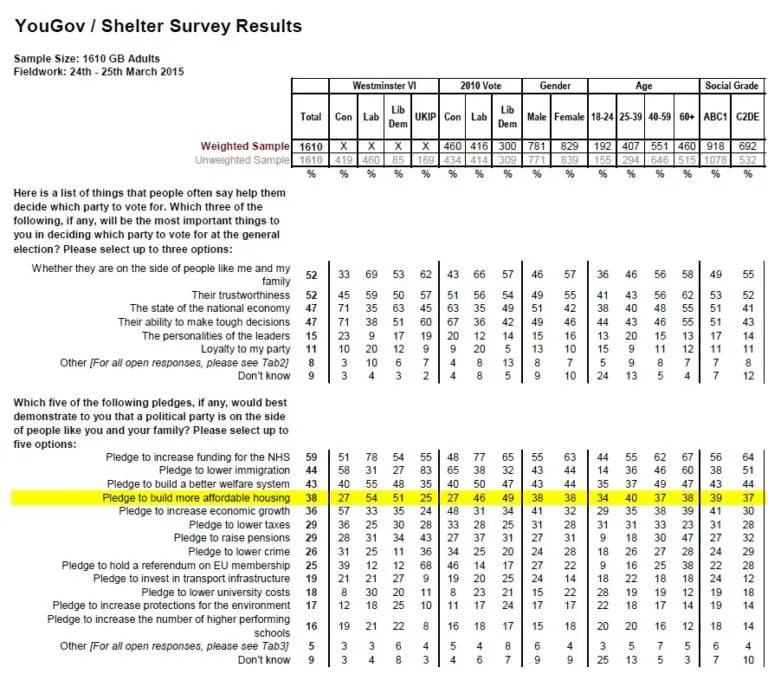The ‘on your side’ question
Published: by Steve Akehurst
With the main parties due to publish their manifestos next week, politicians of all stripes are in overdrive trying to catch the attention of voters across the country. But this raises an interesting question: what judgements help people decide how to vote?
Most pollsters will tell you that people don’t generally vote on detailed policy per se – but rather the overall ‘sense’, or values, that those policies help communicate; how a party ‘smells’. Of course details matter, but so do the signals they send.
A whole range of factors play in to this – whether a party can be trusted to deliver is usually important. So too is the economy, the perception of party leaders, and so on.
But one factor strategists of all parties have tended to fret about is the ‘on your side question’ – is a party ‘on the side of people like me’ or not? Polling by Lord Ashcroft (p. 20 here) shows this judgement to currently be the most salient of the factors influencing voters weighing up Labour and the Conservatives. Nick Robinson argues that it’s why Labour picked up the non-dom tax issue this week, for instance.
But is it really that important, and if so what are the policies that voters think would show political parties understand their lives? We were interested to find out, to see how housing fared. So we asked YouGov* to investigate.
YouGov found:
- Around 20% of the public are potential ‘swing voters’ who may switch party between now and May (7% say it’s ‘likely’ they will, 13% say it is ‘possible’).
- Asked which factors will influence who they vote for, ‘Whether they are on the side of people like me’ came joint top, alongside ‘their trustworthiness’. This beat off other regularly cited important factors such as ‘the state of the national economy’, ‘their ability to make tough decisions’ and ‘the personalities of the leaders’.
- In terms of what parties could do to convince voters they are on their side, respondents were given fourteen options. Pledges on the NHS, immigration and welfare formed the top 3. But what’s striking is the position of housing – it is now right in the mix, with ‘pledge to build more affordable homes’ coming fourth. In fact, building more affordable homes now beats the likes of increasing economic growth, cutting taxes, holding a referendum on EU membership and lowering university costs when it comes to what parties can do to show they’re on the side of ordinary votes.
- This held among potential swing voters, too. Policies on affordable housing are also especially important to 2010 Lib Dem voters – a crucial group in this election – who put it second only to the NHS, and those aged 25-39.
The full results are here.
This underscores housing’s meteoric rise up the national agenda in recent years, and why it’s become such a big issue in this election campaign: because it speaks so powerfully to people’s every day experiences and aspirations. Any party wanting to communicate those values cannot ignore it.
But there’s a warning wrapped up in YouGov’s findings, too. Trustworthiness and delivery are also vital to influencing voting intention. So just as there’s an electoral opportunity facing all parties in picking up housing as an issue, there’s also a significant electoral risk – having talked about it so much in the election campaign – in not following through in office with bold solutions to build affordable homes that actually make a tangible difference to voter’s lives. That makes a big, bold plan that matches the scale of the talk not only a policy necessity, but an electoral one too. We will see how the manifestos measure up.
*All figures, unless otherwise stated, are from YouGov Plc. Total sample size was 1,610 adults. Fieldwork was undertaken between 24th – 25th March 2015. The survey was carried out online. The figures have been weighted and are representative of all GB adults (aged 18+).
